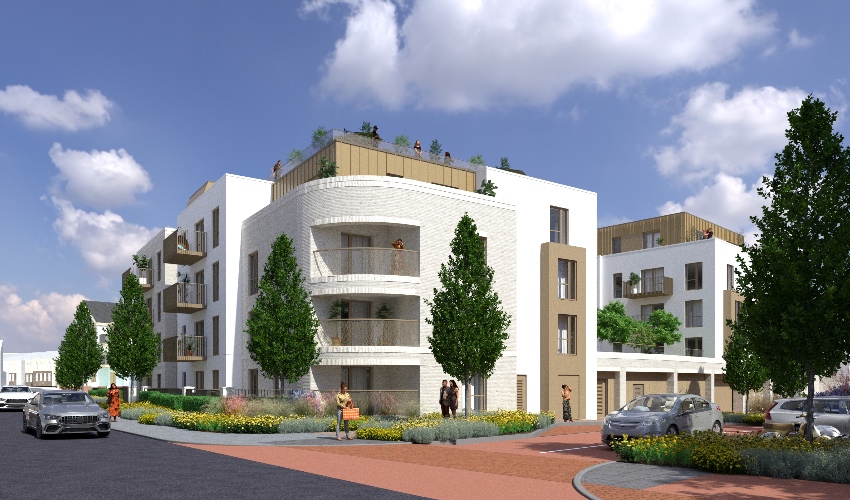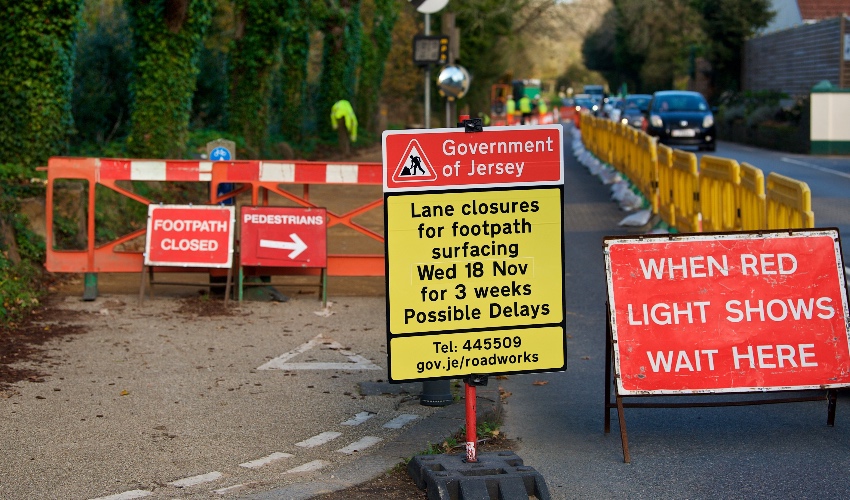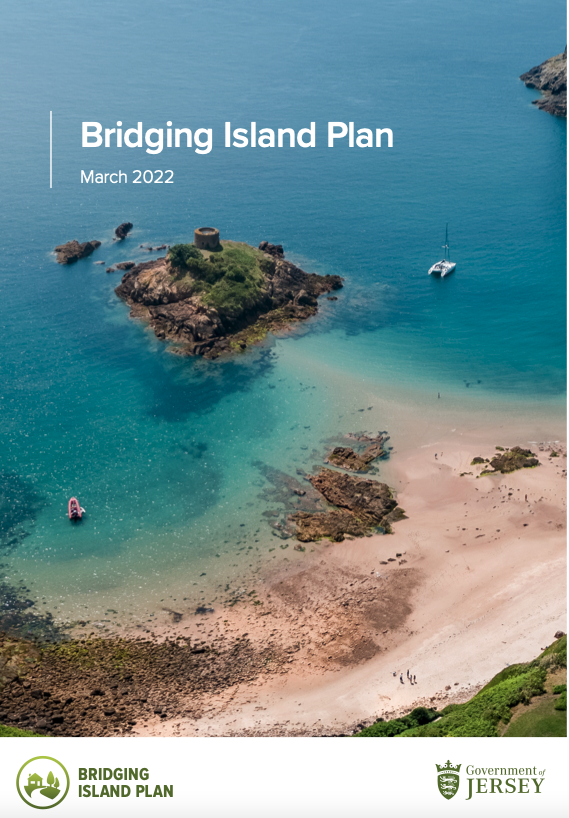


A key group of politicians who decide major and contentious planning applications have voiced concern that property prices are being pushed up by an unofficial ‘tax’ being levied on developers by the Government.
The Planning Committee publicly questioned the suitability of ‘Planning Obligation Agreements’ last week, after one developer had more than £650,000-worth of extra projects attached to its application.
Committee Chair Constable Philip Le Sueur said: “It is as if the Government is adding another tax because the extra cost will ultimately be passed on.”
‘POAs’ are legal agreements between the Government and a landowner or developer, usually used to secure the direct provision of – or funding for – additional infrastructure, facilities or services that will be needed as a result of the development.
Their use is set out in guidance notes that were issued in 2017, but the Government has since introduced a new Island Plan, which establishes fresh policies where POAs can be used.

Pictured: The Committee raised concerns over the quantum of 'Planning Obligation Agreements' attached to a development in Plat Douet.
The three-year Bridging Island Plan – which came into force last March – includes a pledge to update the guidance notes but, over a year later, they have not been published.
Consultant John Nicholson of MS Planning, who represents clients through the planning process, said: “I think it is fair to say that there is a policy lag.
“The Bridging Island Plan is around 15 months old and lots of guidance that it promised is still to be published. Also, it will need to have a proper consultation process, so it is not imminent.”
He added: “Much of the 2017 guidance on POAs can be index-linked to bring it up-to-date, but it is silent on some items that the new Island Plan has introduced.
“In the absence of clarity in the form of published or adopted guidance, then every site turns into a negotiation, which is time consuming and potentially inconsistent.

Pictured: The agreement for Plat Douet Road includes a £272,000 contribution towards the Eastern Cycle Network.
“Most developers just want clarity, and they can then make their commercial decisions. It does seem that the Planning Committee would appreciate the same.”
The politicians’ concerns were raised over an application – which the committee approved – to build 61 apartments and a 127-bed dementia and care village off Plat Douet Road.
The £650,000 of financial contributions that the developer, Dandara, has agreed to make include £272,000 towards the Eastern Cycle Network, £116,000 towards ‘improving the bus service’, and £75,000 towards the creation of a footpath between the site and Plat Douet Road, to include a crossing point at the junction with Bagot Road.
Some of the contributions – which will now be formally set out in a legal agreement – are in lieu of the project’s ‘Percentage for Art’ obligation.
Since 2006, the Government has promoted public art through a ‘Percentage for Art’ scheme. This means that for larger projects – five homes or more for residential projects - 0.75% of the total construction cost must go towards an approved installation.
Alternatively, developers can agree to make an equivalent financial contribution towards approved public projects.
With the Dandara scheme, these include an £80,000 contribution to next-door Plat Douet Primary School to buy a new minibus and five electric bicycles and charging stations for staff, and the construction of a new play area.

Pictured: Planning Committee Vice-Chair Deputy Steve Luce: "There is a list of statutory consultees that go along with any large application, and if they are supportive, that will surely help your case.”
The developer has also agreed to contribute £40,000 towards the refurbishment of the community cricket facilities at FB Fields, and £20,000 towards the refurbishment of existing children’s play equipment at nearby play areas, including Clos Gosset and Grasset Park.
Commenting on these contributions, Planning Committee Vice-Chair Deputy Steve Luce said: “I wouldn’t say the demands of POAs have risen by stealth, but it is something which has accumulated over time.
“We are getting to the point where there may be five, six, seven or eight different obligations, all attracting payment that goes along with an approval.
“This latest application is for 60-odd units, and £650,000+ of obligations for various good causes. That is fine but it does seem that the total figure is now getting to a very, very large amount. This latest example equates to £10,000 per residential unit.”
He added: “When it first started, it might have been for a bench, or a small improvement to a pavement, or a bus stop or shelter – tens of thousands of pounds.
“But adding up this particular one in Plat Douet, we need to be looking at what is going on there. A large amount of money, for instance, is for the Eastern Cycle Track, which is going into a ringfenced pot. It is difficult to see at the moment where they [Infrastructure] are going to be spending it.
“At the end of the day, if a developer has an extra £650,000-worth of costs on top of development costs, they will have to find a way of recovering that cost.
“Clearly the planning process is fair but there is a list of statutory consultees that go along with any large application, and if they are supportive, that will surely help your case.”
The Government said that it could not provide a definitive date when the updated guidance on POAs would be published.
However, it is understood that the review will not fundamentally change the basis of the use of POAs, which is set out by law and guided by policy ‘GD3’ of the Bridging Island Plan.
It states that POAs will be used when, among other things, they are "necessary to make development acceptable in planning terms" and when they are "fairly and reasonably related, in scale and kind, to the development".
When it comes to setting the quantum of contribution, the BIP states: “Where there are cost implications associated with POA requirements, reasonable negotiations may take place in order to agree the means by which the requirements are to be delivered.
“Negotiations should not, however, lead to a lesser value outcome, and the agreed means must fully address the issues that will otherwise exist.”
Meanwhile, the Committee has also voiced its frustration over the lack of another set of promised documents which are needed before another Island Plan policy can come into force.

Pictured: Some supplementary information following the publication of the Bridging Island Plan last year is yet to be issued.
Policy ‘H6’ of the Bridging Island Plan states that: “Development proposals involving the creation of 50 or more new dwellings will only be supported where at least 15% of the development is made available for sale or occupation by islanders eligible for assisted purchase housing.”
This would put the same obligation on private developers that the Government must already abide by with its own housing developments, such as South Hill and the Waterfront.
However, despite the H6 policy coming into effect in January this year, it can only become live "following the development and publication of appropriate assisted purchase products and eligibility criteria, as relevant to the application of this policy".
Those products and criteria are yet to be published.
If the policy had been in place, it would have applied to the Plat Douet Road scheme, meaning that at least nine of the 61 flats would have been classed ‘affordable’ with buyers able to join an assisted purchase scheme.
It prompted the Committee to call for the Government to introduce the policy as soon as possible.
In response, Environment Minister said: “I’m working with the Minister for Housing and Communities to bring this guidance forward as soon as possible so this policy can take effect.
"I expect this work will be completed by September.”
Comments
Comments on this story express the views of the commentator only, not Bailiwick Publishing. We are unable to guarantee the accuracy of any of those comments.